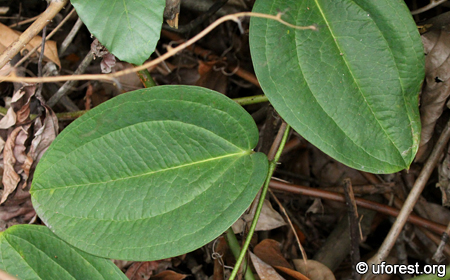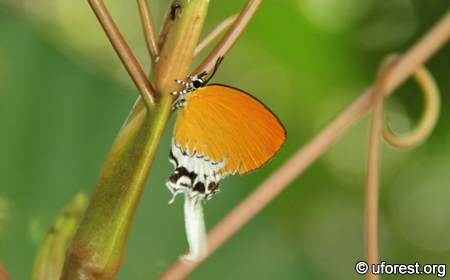| Etymology | Genus | Scratching; referring to the spines on the stem |
|---|---|---|
| Species | Bristly; referring to the hairs on the stem | |
| Family | Smilacaceae | |
| Synonyms | Smilax barbata Wall. ex A.DC. | |
| Common Names | Bearded Smilax | |
| Status | Native: Common | |
| Form | Climber | |
| Native Distribution | Uncertain | |
Diagnostics:
Smilax setosa is a herbaceous climber, with large and alternately arranged leaves. The leaves are also large (~25cm long) and broad with a cordate base, and 3-7 main veins. The stem is covered with brown or white hairs, together with some back-pointing spines. Tendrils extend from the leaf stalk to enable their quick colonisation of their host trees.
Interesting Facts:
Where found, the Bearded Smilax often engulfs the tree it is on because of its aggressive growth. This can prevent successful regeneration of the forest. It's vegetative propagation and sharp spines also hinters active removal, though that is still being carried out.
This climber is the larval host plant for the Branded Imperial (Eooxylides tharis distanti), and Yamfly (Loxura atymnus fuconius) butterflies.

A mass of Smilax setosa in Kent Ridge.

Alternate leaves with tendrils on the petioles.

Leaves.

Hairy stem with spines

Flowers.

Branded Imperial Butterfly on a Smilax.
References
-Author: Siyang
Posted: 2017-12-23 / Modified: 2017-12-31